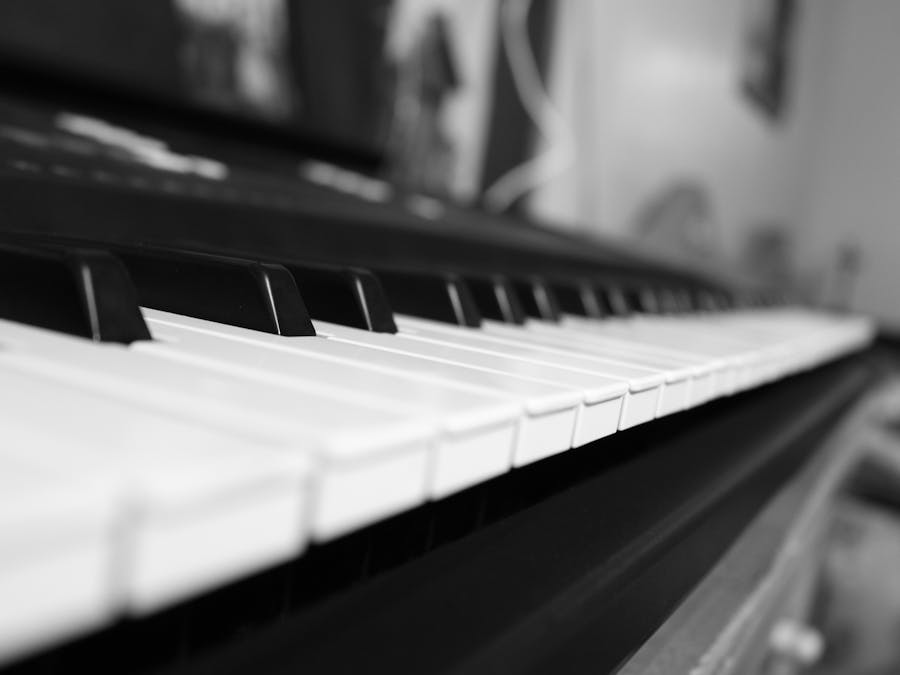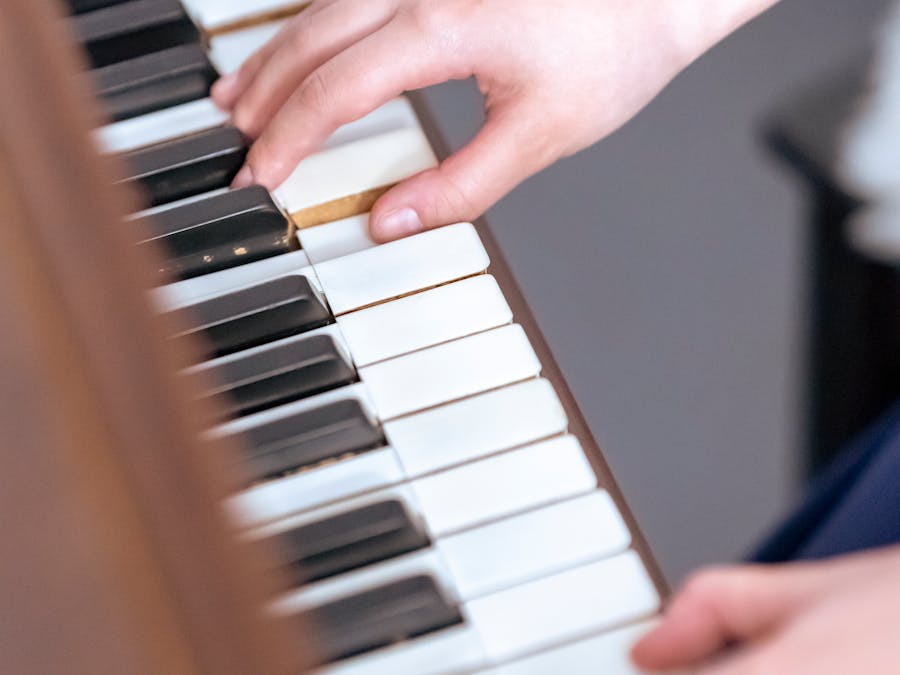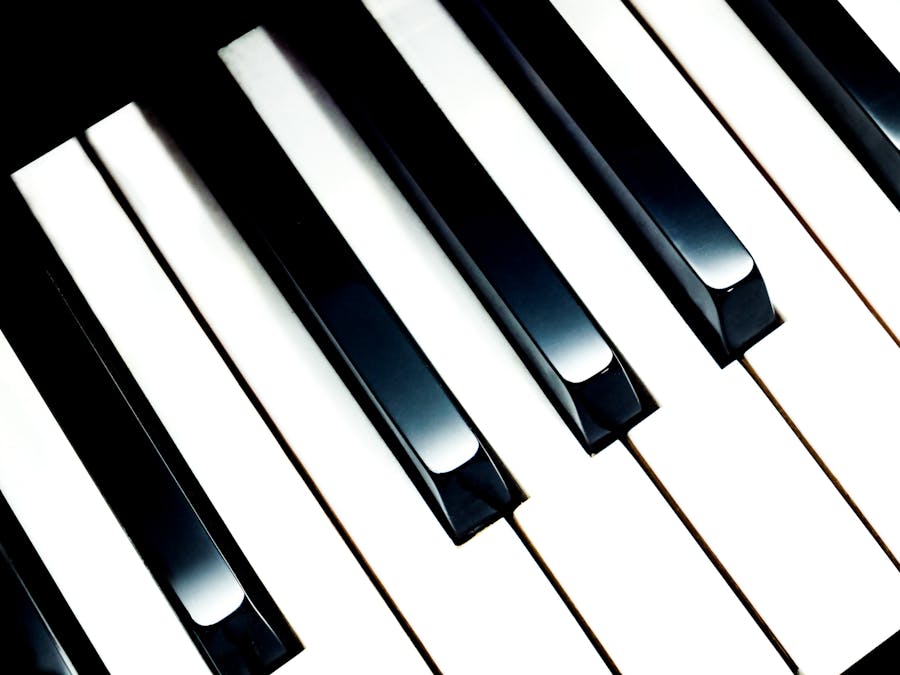 Piano Guidance
Piano Guidance
 Piano Guidance
Piano Guidance

 Photo: Zachary DeBottis
Photo: Zachary DeBottis
The term “gray market” is used somewhat erroneously by new piano manufacturers to describe these pianos to ward off potential used buyers in favor of making a sale on a new model. "Gray-Market Pianos" are used instruments, not new, and there is nothing illegal about buying and selling them.

There is no definitive reason why our current music notation system is designed as it is today with no B or E sharp, but one likely reason is due...
Read More »
Read on to learn what science has to say about the different ways you may be able to boost both your crystallized and fluid intelligence. Exercise...
Read More »If you’re shopping for a piano made within the last few decades, you will usually come across a bevy of used Yamaha and Kawai pianos originally made for the Japanese market. Now, there has been some controversy about these kinds of pianos. Sometimes called “gray-market” pianos, these instruments were originally sold to families and schools in Japan, and then years later were discarded and traded-in for new pianos. Since these pianos do not have much of a market in (the Japanese tend to have a cultural bias against buying any used goods) enterprising businesses buy them, restore them to varying degrees, and export them to the U.S. and other countries, where they are sold by dealers of used pianos. Although looking like an almost new piano, these refurbished models are sold at a price point significantly lower than those of new Yamahas or Kawais. The term “gray market” is used somewhat erroneously by new piano manufacturers to describe these pianos to ward off potential used buyers in favor of making a sale on a new model. "Gray-Market Pianos" are used instruments, not new, and there is nothing illegal about buying and selling them. Yamaha has taken a powerful stand against the purchase of a used Yamaha piano made for the Japanese market as they claim they were originally made for a different climate. The reasoning is that when Yamaha first began exporting pianos to the United States, the company found that some pianos sent to areas of the U.S. with very dry indoor climates, such as parts of the desert Southwest and places that were bitterly cold in the winter, would develop more problems in a short period of time. Problems arising such as tuning pins becoming loose, soundboards and bridges cracking, and glue joints would come apart. To protect against this happening, Yamaha decided to season the wood for destination: a low moisture content for pianos bound for the U.S., which has the greatest extremes of dryness; a higher moisture content for Europe; and the highest moisture content for Japan, which is relatively humid. The gray-market pianos, Yamaha says, having been seasoned for the relatively humid Japanese climate, will not stand up to our dryness. The company claims to have received many calls from dissatisfied owners of these pianos, but cannot help them because the warranty, in addition to having expired, is effective only in the country in which the piano was originally sold when new. My own research and some critical thinking has led me to believe that while there is some basis for Yamaha’s concerns, their warnings are exaggerated to some degree. There probably is a greater chance, statistically, that these pianos will develop problems in conditions of extreme dryness than will Yamahas seasoned for and sold in the U.S. However, thousands of gray-market pianos have been sold by hundreds of dealers throughout the country, in every type of climates, for many years, and, while problems are seen, particularly in sections of the country with temperature and humidity extremes, this doesn't seem to be as widespread as it is made out to be. Any piano from any manufacturer will have to be cared for as to not get too dry or be exposed to weather extremes no matter where it was made or destined for.

You may have heard of "fair use," a copyright provision that permits you to use 10, 15 or 30 seconds of music without copyright obligation. That...
Read More »
Stairway to Heaven In fact, the opening notes of Stairway to Heaven are known in some other circles as the “forbidden riff” or the “forbidden song.”
Read More »Whenever you purchase a used or re-conditioned piano, be sure to get a warranty that runs for at least 90 days, as any problems will usually show up within that period if they are going to show up at all. Finally, be sure to use some kind of humidity-control system in situations of unusual dryness. Remember that air-conditioning, as well as heating, can cause indoor dryness.

dog Blondi Blondi played a role in Nazi propaganda by portraying Hitler as an animal lover. Dogs like Blondi were coveted as "germanische Urhunde",...
Read More »
Most keyboards come with 66, 72, or 88 keys. For a beginner, 66 keys are sufficient for learning to play, and you can play most music on a 72-key...
Read More »
In short, a 61 note keyboard is a great choice for beginners as well as musicians on the move. They are also very popular in classrooms. The...
Read More »
A classically trained pianist, Keys began composing songs by age 12 and was signed at 15 years old by Columbia Records. After disputes with the...
Read More »